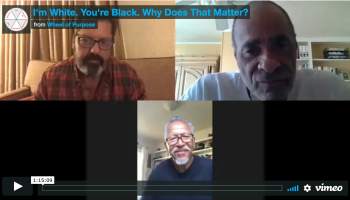
Statement Regarding Inequality in America
Black people are the subject of systemic discrimination; this has been the case throughout US history. Dr. King made waves with radical protests; he, too, was assassinated.
The fact that the Civil Rights Acts passed did little to change the racism embedded in the country.
The following information has been gathered directly from Dr. Ashley Nellis, in her publication titled “The Color of Justice: Racial and Ethnic Disparity in State Prisons.”
Here are some numbers to bear in mind. Although there are five times more white people than African American people in this country, African Americans are incarcerated in state prisons at a rate that is 5.1 times the imprisonment of whites. In five states (Iowa, Minnesota, New Jersey, Vermont, and Wisconsin), the disparity is more than 10 to 1.
In twelve states, more than half people living in jail are black: Alabama, Delaware, Georgia, Illinois, Louisiana, Maryland, Michigan, Mississippi, New Jersey, North Carolina, South Carolina, and Virginia. Maryland, whose prison population is 72% African American, tops the nation.
In eleven states, at least 1 in 20 adult black men is in prison.
In Oklahoma, the state with the highest overall black incarceration rate, 1 in 15 black men ages 18 and older is in prison.
Latinos are imprisoned at a rate that is 1.4 times the rate of whites. Hispanic/white ethnic disparities are particularly high in states such as Massachusetts (4.3:1), Connecticut (3.9:1), Pennsylvania (3.3:1), and New York (3.1:1).
So, racial inequality is a systemic problem in our country. The numbers above demonstrate that the Black community is specifically targeted and imprisoned. And, in the arrest process, many are killed.
The biggest change that has come about in the past few decades is that we all have cell phones. We have personally watched the murder of innocent people including Eric Garner, Ahmed Aubrey, Michael Brown, Philando Castille, and now, George Floyd. These images and videos only capture the tip of a brutal iceberg. If this is what we see police officers do in broad daylight with cameras everywhere, it is imperative that we imagine and think about what they do behind closed doors. It is imperative that we change the legislation that allows them to operate with unregulated force.
So now, we are screaming for change. How does it happen, and how can we be a part of the solution?
I personally believe that the first step is to address the glaring problem: the ongoing murder and mistreatment of Black people at the hand of law enforcement officers. It is widely known that men and women in blue have been offered impunity when they commit criminal acts. This must stop. We must hold them accountable, and there must be a national standard for police treatment. If a police officer mistreats a Black person it should be considered and convicted as a hate crime. The badge is a pledge to serve and protect ones’ community without discrimination; if there is discrimination, the police officer should face jail charges. This is my opinion. Enforcement of the law should also be facilitated by the mandatory use of body cams.
The first step to fixing the problem is addressing the problem. If we, as citizens, are unable to face the fact that Black people are targeted for the color of their skin by institutions and people in power, we will never be able to have a meaningful conversion or create lasting change.
So, first, we have to educate ourselves. We have to have tough conversations.
As the founder of Wheel of Purpose, I am committed to ensuring that my team and I build a platform that welcomes and celebrates all races, all genders, all sexual orientations, all religions, and all walks of life. And to do this, we are committed to learning, listening, and to taking action.
More to Explore...

I’m White. You’re Black. Why Does That Matter?

Four Tips for Healthier Living from Nutritionist Claire Wade-Hak
